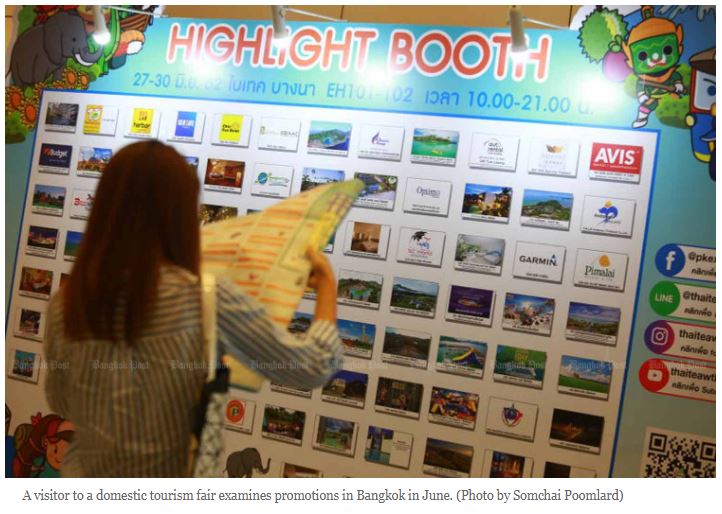Thailand: Free cash to spur tourism, economy
The Finance Ministry is set to dust off a planned cash handout for travel to 55 secondary provinces by including it in the economic stimulus package going before new Finance Minister Uttama Savanayana.
The proposed cash handout for spending in secondary provinces will cost the government tens of billions of baht if the measure comes to life, a source at the Finance Ministry told the Bangkok Post.
In April, the ministry proposed that the military-led government offer a 1,500-baht one-off cash handout for travel in secondary provinces, aiming to boost tourism to these provinces, but the plan was scrapped after being criticised as being politically motivated.
According to the suspended scheme, the 1,500-baht cash handout for spending in 55 second-tier provinces will be allocated to 10 million people who register to participate in the scheme on a first-come, first-served basis.
After registering, qualified recipients must show up in person to receive the handout from the location they choose in the 55 second-tier provinces. The money will be transferred via PromptPay to their e-wallets or bank accounts linked by mobile banking apps.
The new economic stimulus measures are expected to be implemented during the final three months of this year to boost the country’s stuttering economy and offset impacts from a three-month delay in the fiscal 2020 budget disbursement, normally scheduled for Oct 1.
Thailand’s economy will likely grow by less than 3.5% this year due to lower-than-expected export growth, and stimulating the domestic economy is needed to cushion against the global economic slowdown, the source said.
The country’s economic growth expanded at the slowest pace in more than four years during the three months to March at 2.8% year-on-year. Customs-cleared exports fell by 5.8% year-on-year in May after contracting 2.6% in April and 4.9% in March. For the first five months, exports shrank 2.7% year-on-year.
The source said extra allowances, including subsidies for utilities and rental costs for state welfare smartcard holders, could be renewed as well — also costing in the tens of billions of baht.
There are 14.5 million welfare smartcard holders who receive 200-300 baht in monthly living allowances. Those who earn less than 30,000 baht a year receive 300 baht a month, while people earning more than 30,000 baht a year but no more than 100,000 baht receive 200 baht a month.
The previous cabinet in April approved a subsidy of up to 100 baht per month for tap water bills, up to 230 baht a month for electricity bills and up to 400 baht a month for the elderly to pay rent. These measures are due to expire at the end of September.
Assisting small and medium-sized enterprises struggling with the weak economy is a government focus, and the Finance Ministry is seeking ways to use specialised financial institutions as a means to provide them financial liquidity, the source said.
On Thursday Mr Uttama summoned officials from the Fiscal Policy Office, the State Enterprise Policy Office and the Revenue Department to ask what measures they plan on proposing to the government.
“Today I plan to meet with the three departments’ officials to ask them what they are doing and for a progress report on the projects,” Mr Uttama said. “For Palang Pracharath Party’s campaign promises, we need to wait for the government to deliver policies to parliament on July 25 before saying what the Finance Ministry will do.”


 English
English





